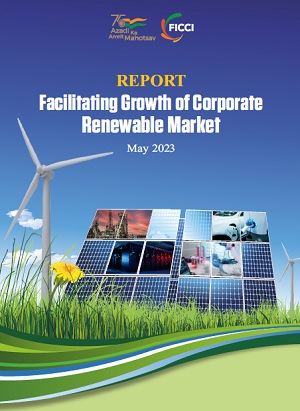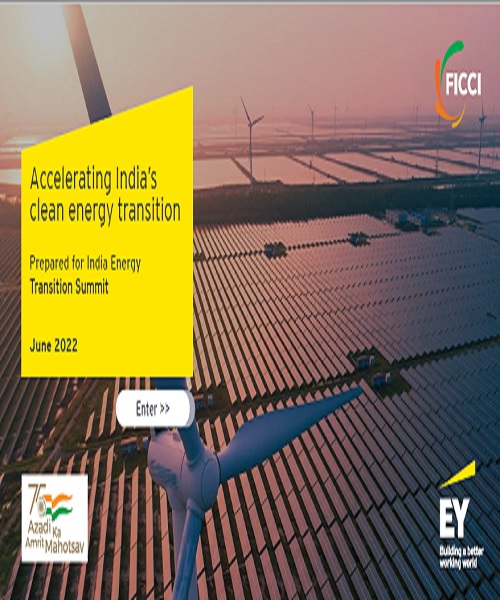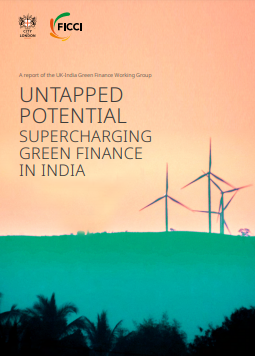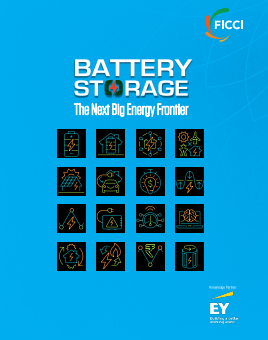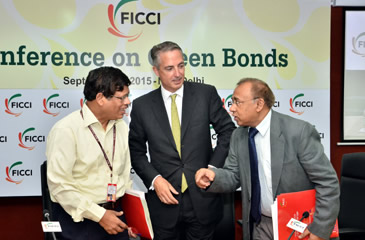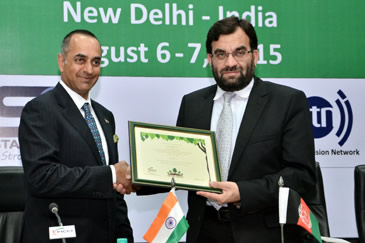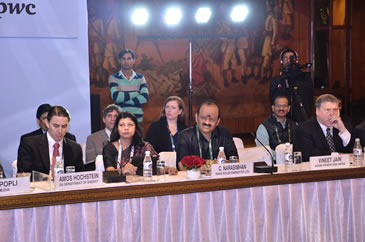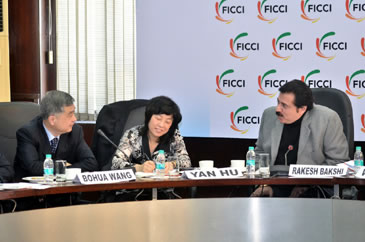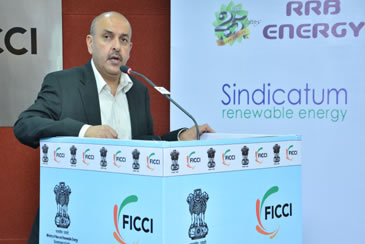The favorable climatic conditions for use of Renewable Energy in India provide an abundant untapped potential for solar, biomass and other renewable energy sources. Renewable Energy in India has the ability to play an important role in grid connected as well as off-grid and decentralized power generation and applications. FICCI believes adoption of Renewable Energy is very important for India as it will increase energy security, energy access to for energy deprived population, reduce forex outgo and reduce our dependence on depleting fossil fuel resources.
The favorable climatic conditions for use of Renewable Energy in India provide an abundant untapped potential for solar, biomass and other renewable energy sources. Renewable Energy in India has the ability to play an important role in grid connected as well as off-grid and decentralized power generation and applications. FICCI believes adoption of Renewable Energy is very important for India as it will increase energy security, energy access to for energy deprived population, reduce forex outgo and reduce our dependence on depleting fossil fuel resources. FICCI's Renewable Energy Division has taken up a broad spectrum of initiatives to promote and address industry's concerns from time to time on the generation and use of renewable energy.
The FICCI Renewable Energy Division works on renewable energy policy and regulatory issues, acts as a catalyst for business promotion, trade and investment linkages and represents voice of Indian industry at domestic and global forums.
Team Leader
Arpan Gupta
Addl. DirectorEnergy Storage
Solar Energy
Wind Energy
Timeline
Commercial & Industrial Consumers are our Partners in Transition towards Net Zero & Decarbonization: Lalit Bohra, Joint Secretary, Ministry of New and Renewable Energy
FICCI Seminar on Renewable Energy (RE) Solutions for Commercial and Industrial Consumers
FICCI and Scottish Chambers of Commerce explore collaboration opportunities in green hydrogen
Reducing Power Cost through Renewable Energy (RE) Solutions and Roadmap to 100% RE for Industries
FICCI-MNRE organize Chintan Baithak 'Roadmap to achieve net zero carbon emissions by 2070'
MNRE Chintan Baithak
Reducing Power Cost through Renewable Energy (RE) solutions and a roadmap to 100% RE for Cement, Steel and Heavy Industries
Reducing Power Cost through Renewable Energy (RE) solutions and a roadmap to 100% RE for IT and Datacenter companies
Govt working on roadmap for guidelines on Green Energy, Open Access Rules for New and Renewable Energy: Amitesh Sinha, Joint Secretary, MNRE
Webinar on Reducing Costs and Going Green through Solar Energy: Benefits/Opportunities for Industrial and Commercial Consumers
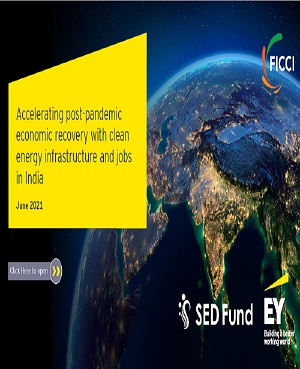
Accelerating post-pandemic economic recovery with clean energy infrastructure and jobs in India
Reducing Power Cost through Renewable Energy (RE) solutions and a roadmap to 100% RE for Pharma and Healthcare companies
FICCI - EY Webinar: Accelerating post pandemic economic recovery with clean energy infrastructure and jobs in India
India Distributed Energy Forum (IDEF)
Large Scale Renewable Energy Penetration through Open Access
Ministry may extend ISTS waiver for renewable energy projects: R K Singh
Interactive Session with Shri R.K. Singh, Hon'ble Minister of State for Power and New & Renewable Energy
Govt. committed to its renewable energy target of 30 GW by 2022: Gujarat Energy Minister
Government in the process of finalizing new energy policy: NITI Aayog Additional Secretary
AIIB Lead Up Event in Bhopal on Clean and Renewable Energy
ISA constituted Global Leadership Task Force of Corporates on Innovation meets in Delhi
Private Sector to play an instrumental role: ISA forms the International Committee of Chambers of Industry
Green Infrastructure Investment Coalition and Terra Watt Initiative released Solar Investment Statement
Onus on lending agencies to help lower cost of capital & technology for renewable projects: Secretary, MNRE
Seriousness shown by the Govt. in renewable energy has evoked positive signals - FICCI president Jyotsna Suri
India-China solar companies discuss possibilities and to warm up for the 'RE-INVEST Meet'
FICCI and New & Renewable Energy Ministry organize the first Renewable Energy Global Investors Meet & Expo (RE-Invest)
Conference on Destination India: Opportunities for Investments in Solar Energy in India
FICCI Recommends Auction Based System for Allocation of Natural Resources
Procurement Planning, Early Setting up of Coal Regulatory Body, Distribution Franchisees among 5 Key Elements for Attracting Rs 11 Trillion Investment in Power Sector in 12th Plan: FICCI-CRISIL Paper
FICCI Cautions Against any Move to do Away with Domestic Content Requirement in Solar Energy Sector
FICCI Lauds Passage of Civil Liability for Nuclear Damage Bill; Calls for Commercially Viable Options for Industry's Participation
Ficci calls for level playing field for Indian Industry in National Solar Mission


